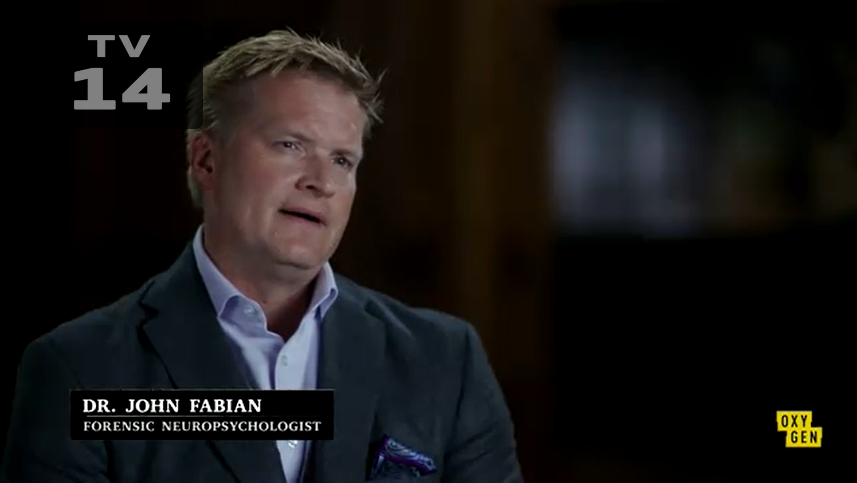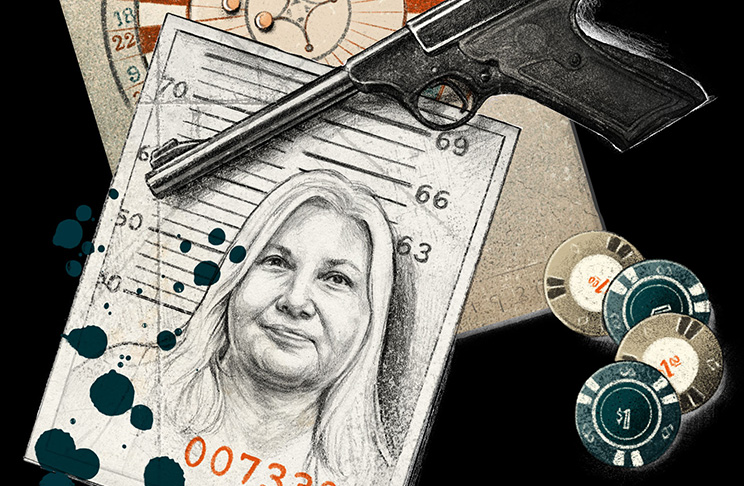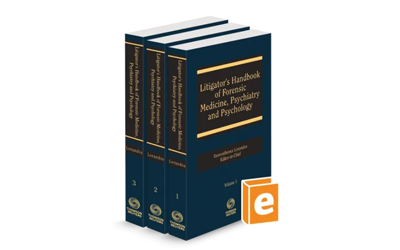About Dr. Fabian
 John Matthew Fabian, PSY.D., J.D., ABPP is a board certified forensic and clinical psychologist by the American Board of Professional Psychology (ABPP), and fellowship trained clinical neuropsychologist. Dr. Fabian has a national practice specializing in criminal and civil forensic psychological and neuropsychological evaluations.
John Matthew Fabian, PSY.D., J.D., ABPP is a board certified forensic and clinical psychologist by the American Board of Professional Psychology (ABPP), and fellowship trained clinical neuropsychologist. Dr. Fabian has a national practice specializing in criminal and civil forensic psychological and neuropsychological evaluations.
Dr. Fabian was formerly director of a state court psychiatric clinic, and he has worked in adult and juvenile court psychiatric clinics, a state forensic hospital, and a Federal Bureau of Prison forensic center. He has examined over 4,500 criminal forensic cases, including 725 murder cases, and has testified over 450 times in approximately 25 states.
Dr. Fabian’s areas of expertise include but are not limited to competency to stand trial, competency to waive Miranda rights and false confessions, not guilty by reason of insanity, diminished capacity, violence risk assessment, death penalty mitigation and intellectual disability, military forensic mental health assessment, sexually violent predator civil commitment, internet pornography/solicitation,sexual abuse litigation, juvenile homicide, and juvenile sentencing and waiver cases. He has extensive experience in forensic assessment and testimony in both criminal and tort based civil cases with traumatic brain injury (TBI) and posttraumatic stress disorder (PTSD).
Dr. Fabian also has extensive experience working as a clinical neuropsychologist at the University of New Mexico School of Medicine, Center for Neuropsychological Services, and at the Veteran’s Administration Polytrauma TBI and PTSD Unit.
Dr. Fabian has evaluated and testified as a forensic psychologist and neuropsychologist across the United States. He is a recognized expert in the forensic neuropsychological assessment of violent and sexually violent offenders. In addition to teaching courses in forensic psychology, neuropsychology and the law, and violence risk assessment in college graduate and medical school settings, he is published in law review, peer review, and bar journals.
Dr. Fabian is or has been a member of the following professional organizations: American Psychological Association, Division 41 American Psychology-Law Society, American Academy of Clinical Neuropsychology Affiliate Member, National Academy of Neuropsychology, and Association for the Treatment of Sexual Abusers-Clinical.
KXAN - FALLEN
After serving as an expert forensic psychologist and neuropsychologist in this death penalty case, Dr. Fabian is highlighted in the Austin KXAN documentary “Fallen” examining the mental illness and brain functioning of defendant David Risner who killed Police Chief Lee Dixon.
Dr. Fabian is featured at 2:26 in episode 2.
Dr. Fabian is featured at 1:18 in episode 3.
Dr. Fabian also was asked to testify in the case against Quentin Smith who was convicted in the aggravated murders of Officers Eric Joering and Anthony Morelli in this WBNS news story.
Dr. Fabian evaluated the Englewood Killer, a Chicago serial killer who raped and murdered 11 women.
Watch a clip on Oxygen
Read the article published by the Daily Mail.

Forensic Psychologist and Neuropsychologist, Dr. John Fabian (on left), presents competency and mitigation testimony in a double capital murder case.
Dr. Fabian was quoted in the Atavast Magazine on the Lois Riess multi-state spree killer case.
Come Inside
Killer Education - S2 Ep2: Dr. John Fabian
Dr. Fabian was featured on the Come Inside podcast, Season 2, Episode 2.
Dr. Fabian testifies in the death penalty sentencing hearing of a double homicide police officer shooting case.
Litigator's Handbook
Chapter 28 - Forensic Neuropsychological and Neurological Evaluation of Violence,
John Matthew Fabian
In addition to a thorough review of the literature on neurological and neuropsychological correlates to violence, in-depth analysis of relevant case law is also included. Lawyers, judges and experts alike will find the Forensic Neuropsychological and Neurological Evaluation of Violence chapter a key resource when dealing with neuropsychological and neurological issues in the courtroom.



